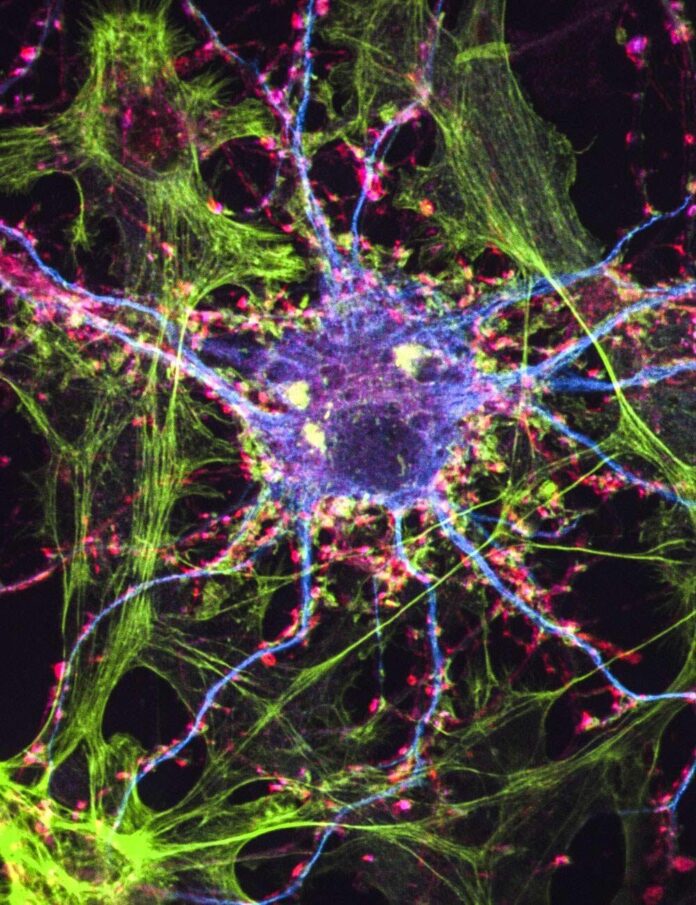The research center will be a hub for the UC Davis neuroscience community to propel knowledge on the mechanisms of psychedelics and create effective therapeutics
By KATIE HELLMAN AND KAYA DO-KHANH — science@theaggie.org
On Feb. 2, UC Davis announced the launch of the Institute for Psychedelics and Neurotherapeutics. The center will provide a space for researchers to learn more about psychedelics, which are drugs that can be used to treat neurological conditions such as Alzheimer’s disease, Parkinson’s disease, Major Depressive Disorder, Post-Traumatic Stress Disorder and addiction, according to a recent press release.
David E. Olson, an associate professor in the Departments of Chemistry and Biochemistry and Molecular Medicine at UC Davis, will be the founding director of the institution, and John A. Gray, an associate professor in the Department of Neurology at UC Davis, will be the associate director. In 2018, Olson and Gray published an article in Cell Reports, a life sciences publication, discussing how the use of psychedelics can help neurons grow and form connections through a process called neuroplasticity.
“Psychedelics bind to a particular serotonin receptor in the brain that causes the neurons to sprout new branches and start to make new connections with their neighbors,” Olson said. “They don’t do this indiscriminately — it’s not everywhere in the brain — it’s in very specific cells in key circuits.”
The institute’s impact will allow the nearly 300 faculty members in UC Davis’s neuroscience community to study psychedelics and analyze their effects through human clinical trials. These scientists will be able to conduct groundbreaking research in a setting designed specifically to facilitate collaboration and researchers will be able to interrogate multiple aspects of psychedelic science from a molecular level to as big picture as human clinical trials.
“Part of this institute is to provide incentive and funding to labs who are interested in starting to do some research on the mechanisms of psychedelic action and to capitalize on the very broad expertise that UC Davis brings,” Gray said.
The institution intends to create compounds called psychoplastogens, which perform like psychedelics and promote neuroplasticity but mitigate the potential for substance abuse.
“The ultimate goal is to create molecules that have this rapid sustained effect like psychedelics do but that are significantly safer and more scalable,” Olson said. “One thing that we have been doing is developing non-hallucinogenic variants of these compounds that still produce neuroplasticity but don’t have the abuse potential of psychedelics. We call these psychoplastogens because of their neuroplasticity-promoting properties.”
About $5 million of the funding for the new institution will come from a joint contribution by the deans of the UC Davis College of Letters and Science, the UC Davis School of Medicine, the Vice Chancellor for Research and the Office of the Provost.
The center is distinguishable from others across the country in this way. It is receiving considerable support from university funds, including philanthropic donations, grants, sponsored research agreements from the federal government, private foundations and industry partners to support its launch.
In addition, this new institute will also collaborate with pharmaceutical partners through sponsored research agreements and licensing, which will help tackle the challenges associated with translating academic discoveries and lead compounds into drug candidates for clinical use. For example, a company called Delix Therapeutics, co-founded by Olson, has licensed UC Davis’s technology and supported campus research projects relating to psychoplastogens and neuroplasticity.
Susan Murin, the dean of the UC Davis School of Medicine, discussed how the collaborative launch of the institution can advance treatments for patients with neurological conditions.
“We believe we have the potential to be leaders in this field by virtue of our broad institutional expertise and to thus make substantial contributions to human health,” Murin said via email. “The combination of Dr. Olson’s chemistry expertise and our ability to conduct trials on the animal to human continuum is very powerful. Ultimately, our goal is to advance science and health for the benefit of society and we see this institute as contributing to that goal.”
Written by: Katie Hellman and Kaya Do-Khanh — science@theaggie.org





